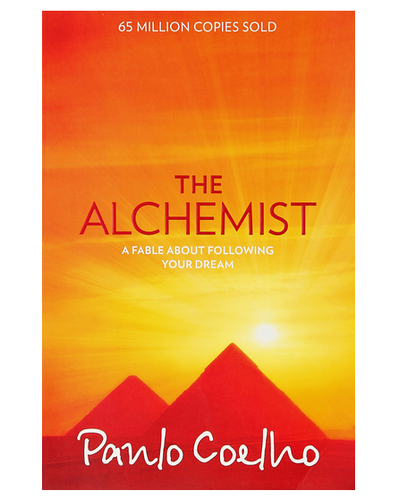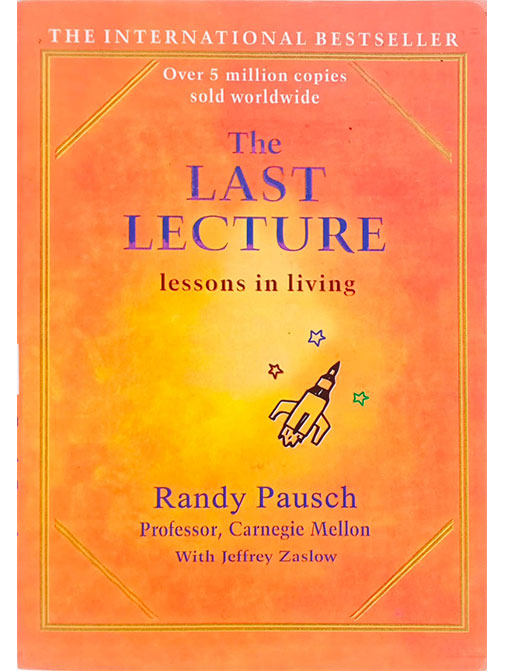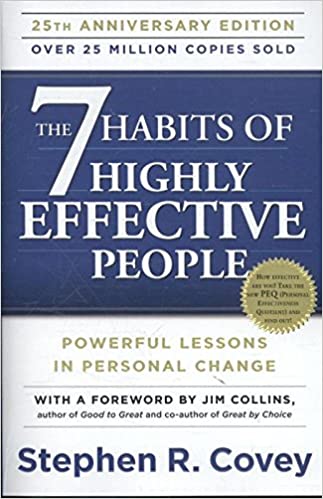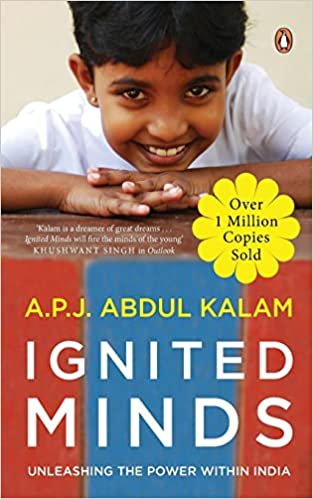You'll learn about five inspiring books that every college student should read in this article. We all want to succeed and become well-known in our life, and we get our inspiration from the people we see around us and read about in the news and periodicals on a regular basis, such Bill Gates, Mark Zuckerberg, Steve Jobs, APJ Abdul Kalam, and many more. We attempt to walk in their shoes and read about them to gain insight into their life and learn what distinguishes them from everyone else. Their reading habit is the one thing that distinguishes them from the crowd.
You will always find people who read a lot, despite how hectic their schedules are; they make time for good novels and books from their areas of interest, such as inspirational books, biographies, historical, etc. When I say good novels and books from their areas of interest, I don't mean newspapers. Bill Gates reads about 50 books a year and is an avid reader. By sharing his ravenous taste for words and the books that have inspired his life and thoughts, he constantly encourages and begs everyone to read. Our late President APJ Abdul Kalam only left behind six pairs of pants, four shirts, three suits, and about 2,500 books when he passed away. This explains why some folks are so passionate about reading.
While some of you may truly be readers, like Bill Gates and Abdul Kalam Sir, the majority of people nowadays think that playing video games, chatting on WhatsApp, or watching television is preferable than reading a book. While playing and speaking may be easier tasks, reading broadens your perspective and increases your knowledge of the world. You can learn wisdom from books that no one will ever be able to teach you.
Because they always have a buddy by their side—books that keep them occupied and busy in their own world—readers never get bored or afraid of being alone. Another objection that some of you could make is that there isn't enough time for reading in college. I beg to differ, though; college is a fantastic time to increase your knowledge in every manner. You will find many opportunities for learning if you look beyond your classes.
Reading is crucial because it encourages pupils' inventiveness. A meaningful book may also alter the way you perceive specific circumstances, which will have an impact on your life. There are many motivational books for college students that are meant to encourage readers to never settle for little dreams and to always aim high. These inspirational books support the growth of self-assurance and the determination to achieve any goal you have ever had. In order to help college students have a bright future and reach their goals, we would like to share with you some must-read books. While we make a pledge not to reveal the plot of the book, we will give you a taste of it in hopes that it will inspire you to read it. The following are some of the top books on motivation for college students that you really must read:
The Alchemist

was masterfully written by renowned author Paulo Coelho. Through its protagonist Santiago, an Andalusian shepherd lad, Alchemist strikes a chord with everyone of us. It explains the fundamental human impulses. We all have passions, some of which we follow while others we hide from out of fear of society and the outside world. This book imparts the fundamental knowledge of listening to our hearts, identifying chances, developing the ability to read the omens placed along the course of life, and—most importantly—following your dreams. We are all aware of the rules that control the world and that everyone must abide by; yet, this book serves to remind us of all those rules:
- Dreams can come true at any point in time in a person's life.
- The universe works with you to assist you reach your goals when you have a desire for something.
- A guy never lets love prevent him from following his purpose.
- However, the key to life is to fall seven times and get back up eight times.
- The fear of suffering is more terrible than the actual suffering. When a heart pursues its aspirations, it has never experienced pain.
- Everyone seems to have a distinct opinion on how other people ought to live their lives, but none about their own.
- Never Give Up Dreaming.
After finishing The Alchemist, take up the equally excellent novel "Manuscripts Found in Accra" by the same author.
The Last Lecture:

We all seek the counsel of our seniors for words of wisdom, recommendations, and advise. Well, comparable themes are used to write this work. Professor Randy Pausch of Carnegie Mellon University is diagnosed with pancreatic cancer at the age of 47. This is his final lecture, in which he encourages readers and college students to live each day to the fullest. You don't want the book to finish because it's so strong and uplifting. A optimistic approach, perseverance, sacrifice, self-confidence, modesty, courage, and dealing with misfortune are all themes that Pausch discusses throughout his life stories. While reading this book, one may come across some lovely passages like these:
- Opportunity arises when preparation meets luck.
- The brick walls exist to offer us a chance to express how much we desire something, not to keep us out. They are there to prevent others.
- When you don't receive what you wanted, experience is what you get instead. And the most valuable asset you have to offer is frequently your expertise.
- Are you spending your time on the correct things? is the crucial question to keep asking. since all you have is time.
- Never ever undervalue the value of enjoying yourself.
7 habits of Highly Effective People

This book by Stephen R. Covey focuses on how habits are formed and what kinds of habits are required to be highly effective. It was written in the 1990s when Americans needed to be more productive in the workplace. According to the author, habits develop as a result of consistent behaviour and a particular amount of dedication. The author introduces and describes the seven habits that produce a remarkable and highly effective person in 4 parts of the book. Here are the seven habits:
- Proactive: Just like unhappiness, happiness is a choice.
- Start with the end in mind: Everything is formed twice, once in the mind and once it manifests physically.
- Put first things first: The idea is to schedule your priorities rather than prioritising the items on your schedule.
- Adopt a win-win mindset. For example, "sow a thought, reap an action," "sow an action, reap a habit," "sow a habit, harvest a character," and "sow a character, reap a destiny."
- Seek first to comprehend before seeking to be understood: Most individuals listen with the intention of responding rather than seeking to understand.
- Synergize: Success in life can be attained by developing the habit of synergy in all spheres of endeavour.
- Hone your tools: We become what we repeatedly do. Therefore, excellence is a habit rather than an act.
The Fountainhead

We are told from a young age to follow our passions with all of our might. You can only achieve your dreams if you pursue them with all of your heart and mind. Howard Roark serves as the protagonist of Ayn Rand's wonderfully crafted plot in this novel, which features five other characters. In a society that rejects your beliefs and ideas, the story teaches you how to survive. The novel might not immediately pique your interest, but as it goes on, you'll start to wonder about your own morals as you read about Roark's life. Ayn explains how some people simply accept what is given to them, while only the gifted and the dreamers are able to shape their lives and personal styles. Roark is devoted to his desire of being an architect with great passion, but he won't create structures the conventional way. He is also highly self-assured and humble, which is why he is willing to assist his friend Keating in building design even though he receives nothing benefit from it. Every character in the book gives an example of a different kind of person that one might meet on their path through life. The author provides you the option of picking your own route and your own tale without focusing on any particular individual. The fight of the free mind, the war for innovation and individuality (all typified by Roark), and the struggle against conventional wisdom, or the "second-handers," or those who simply consider what other people say are the key themes of "The Fountainhead" (mostly symbolised in Keating).
Great passages from the book include:
- "Freedom (n.): Not to ask for anything. a lack of expectations to have no reliance
- Dean, saying, "My dear man, who will permit you? "That's not the point, Roark said. Who will stop me, that is the question.
- The thing that is most difficult to convey is blatantly obvious but that no one wants to see.
- The simplest thing in the world is to sell your soul. Everyone spends every hour of every day doing it. Would you get why it would be more difficult if I asked you to hold onto your soul?
- Pay attention to the sermons being given today. Look at everyone in the vicinity. You've questioned why people endure suffering and why they look for joy but never do. Any guy would discover the answer if he paused and asked whether he had ever harboured a really personal yearning. He would realise that all of his goals, aspirations, and efforts are driven by other guys. He isn't actually battling for anything substantial, but rather for the second-handers' illusion of grandeur. a seal of approval rather than his own. Both throughout his battle and after he succeeds, he is unable to experience joy. He is unable to claim that he wanted something just for selfish reasons and not because doing so caused my neighbours to stare in disbelief. Then he wonders why he’s unhappy
Ignited Minds

Ignited Minds is a gift Dr. APJ Abdul Kalam gave to us before he left; it is a book devoted to the nation's young and college students. The book is simple to grasp and a must-read for Indian youth because it is written in essay style. The book opens with an encouraging message to India's young to dream big and have faith that their dreams will come true. Dr. Kalam criticises the willingness of Indians to settle down in his book. He speaks to Indian young who have stopped dreaming and are simply following the rat race of doing what others around them are doing, with little success and without leveraging their full potential, resources, ability, and abilities. Dr. Kalam discusses the blending of science and spirituality and stresses the significance of spiritual growth alongside other types of progress, such as that occurring in the fields of education, agriculture, information technology, etc. He exhorts the people of India to come together and carry out a purpose via his experiences and contacts with individuals from many areas of society, including school and college students, illustrious scientists and visionaries, saints, and entrepreneurs.
Some beautiful lines from the book are:
- Thinking is the capital, enterprise is the path, and hard work is the answer are some lovely passages from the book.
- At that point, I understood that when something is at stake, the human intellect is ignited and its productivity is multiplied.
- It's important to change. It stimulates fresh thinking, and fresh thinking inspires creative action.
- Men frequently become the person they think they are. I am incapable of achieving something if I think I can't do it. But when I think I can, even if I didn't have it at first, I develop the capacity to accomplish it.
- Always, Always Dream. Dreams become ideas, and thoughts become deeds.
Reading well-written books helps us develop our thinking paradigms, broaden our horizons, and sharpen our minds.
We think that these are some of the top motivating novels for college students that they all should read. For college students, their time in college is highly important. Your future will be shaped by the choices you make now. So read some good novels before making any decisions or making up your mind about anything. Reading quality literature broadens your horizons, changes your perspective, and hones your mental saw. Reading helps you realise how difficult it is to reach perfection and how difficult it is to take things for granted.
Therefore, reading 50 books a year is not essential; instead, take baby steps because it is stated that all great journeys begin with a single step. The above-mentioned must-read novels are a wonderful place to start since they will grab your attention and get you in the habit of reading. If you have questions regarding books or what to read, send us an email.
All the best



You must be logged in to post a comment.